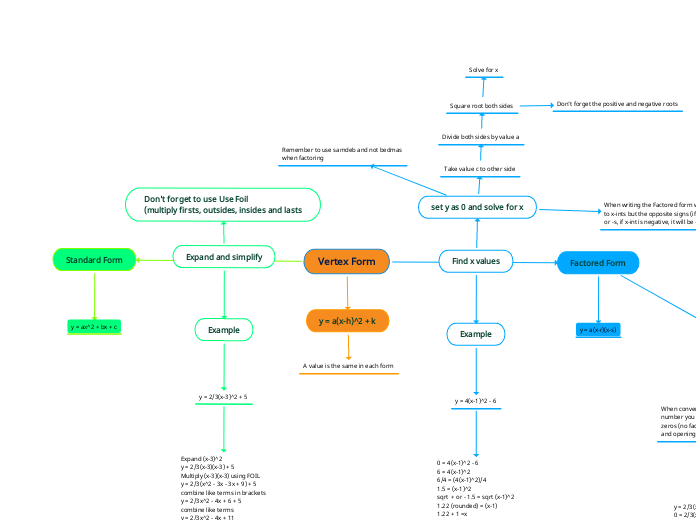przez DANIEL SHANG 4 lat temu
315
Vertex Form

przez DANIEL SHANG 4 lat temu
315

Więcej takich
x ints are = 2.22 and -0.22 y = 4(x-2.22)(x+0.22)
Square root both sides
Don't forget the positive and negative roots
Solve for x
Example
y = 2/3(x-3)^2 + 5 0 = 2/3(x-3)^2 + 5 -5 = 2/3(x-3)^2 (-5)/(2/3) = (2/3(x-3)^2)/(2/3) -7.5 = (x-3)^2 cannot square root -7.5, therefore there are no zeros